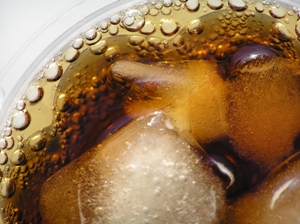New York's super-sized drinks ban divides opinion among food economists
Release Date 12 March 2013

Controversial new legislation comes into force in New York today (12 March 2013) outlawing the sale of ‘supersize' sugary soft drinks more than 16 oz in volume (453ml, or about five-sixths of a pint in Imperial measures).
Food economists at the University of Reading, who have studied in detail the impacts of legislation on diet and the obesity epidemic, will be watching the results of the New York experience with interest.
Professor Bruce Traill is professor of food economics and lead researcher for the EatWell project, a pan-European study examining the effectiveness of legislation on healthy diets, which concluded that legislation such as ‘fat taxes' could lead to people adopting more healthy lifestyles.
He said: "Research by psychologists and behavioural economists suggests that people eat and drink more from larger portion sizes, and that there has been substantial portion-size escalation in the US. What is not clear is whether people compensate for consuming large portions with lower intakes at other times of the day or week.
"We look forward to the New York experiment generating data that can answer such questions."
However, Professor Richard Tiffin, an agricultural economist and director of the University of Reading's Centre for Food Security, believes that such legislation does not do enough to encourage people to eat and drink healthily.
He said: "The influence of portion size on of food has been widely demonstrated by behavioural scientists. For example researchers in the US have demonstrated that people at a Super Bowl party ate 59% more crisps (chips) when they had double size bowls available to them.
"It should be recognised however that on average the percentage of total calories which come from soft drinks is less than 2% and therefore reducing soft drink consumption alone will do little to tackle the growing obesity problem.
"What is really needed is a comprehensive attempt to address our behavioural biases which lead us to eat unhealthily. This might include attempting to control portion sizes across a wider range of foods but could also entail the provision of better information to consumers about the nature of their own behaviour which leads to them over-eating."
ENDS
For more details please contact Pete Castle at the University of Reading press office on 0118 378 7391 or p.castle@reading.ac.uk.
Notes to editors:
The University of Reading is ranked among the top 1% of universities in the world (THE World University Rankings 2012). It has an international reputation for excellence in research and teaching in the areas of food, agriculture and health, with centres of excellence including the Institute for Cardiovascular and Metabolic Research (ICMR) and the Centre for Food Security.